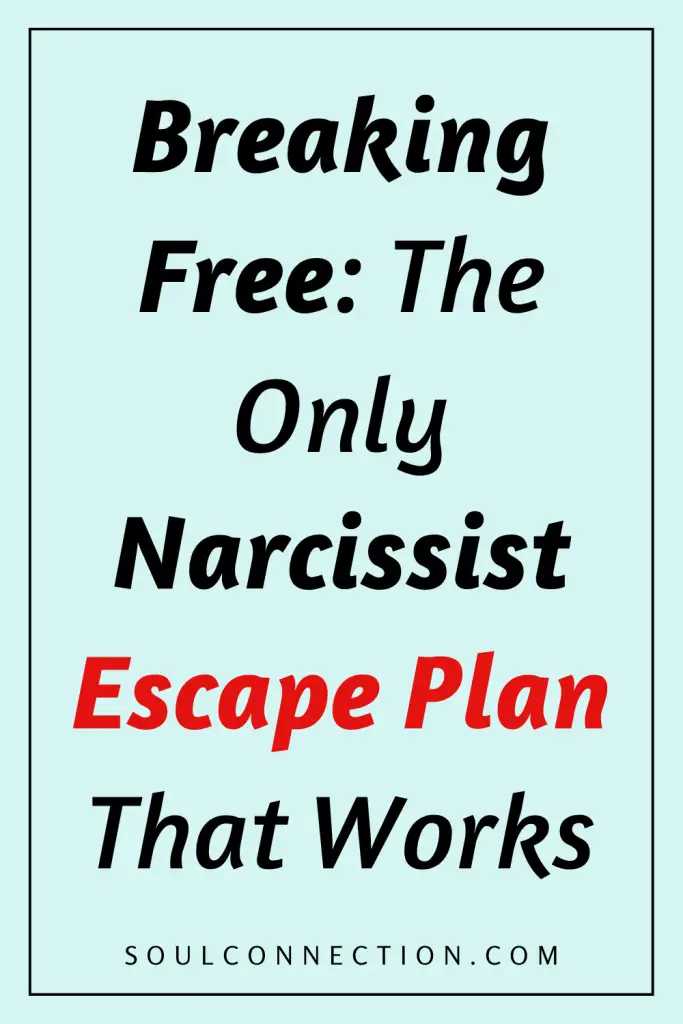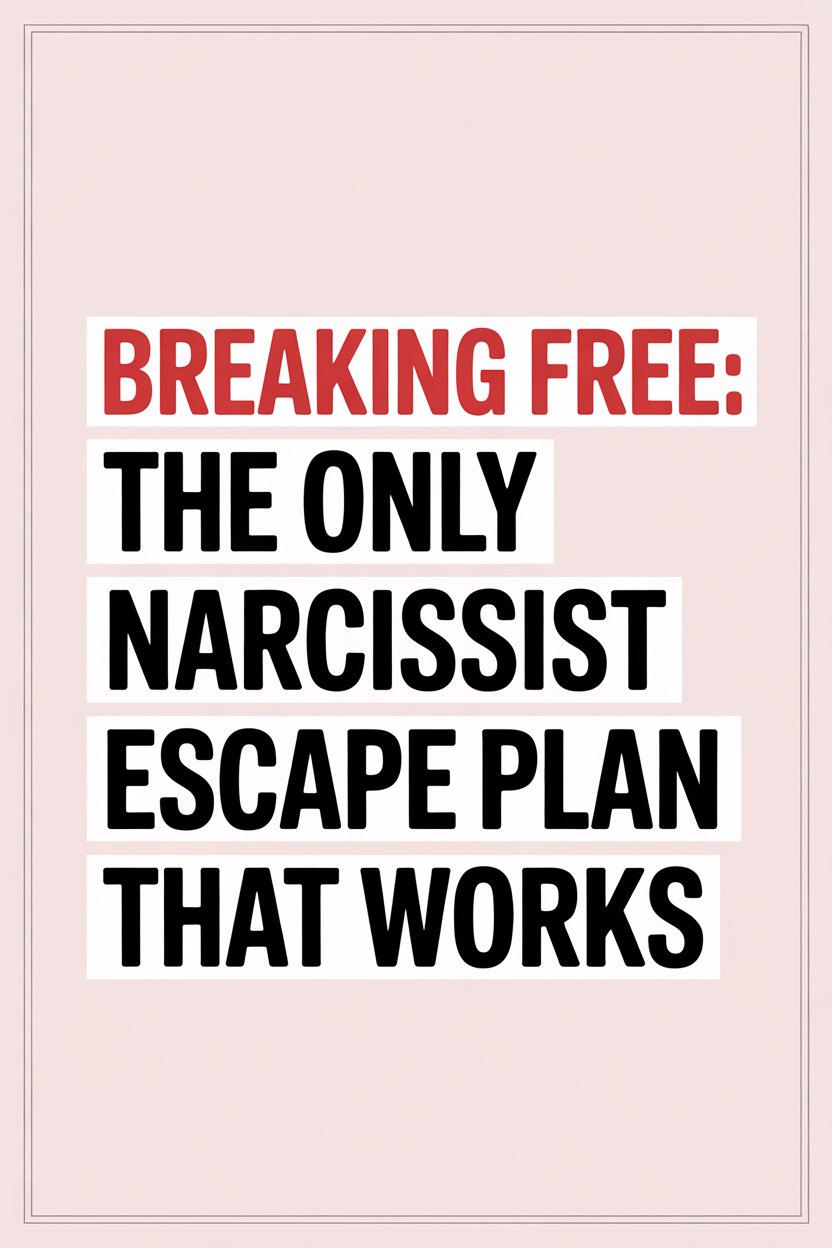Not everyone dreams of starring in their own psychological thriller, but sometimes life hands you a narcissist and a front-row seat.
If you’re reading this, chances are you’re tired of plot twists, emotional acrobatics, and conversations that feel suspiciously like performance art.
Maybe you’re wondering if it’s even possible to break free from the narcissist’s orbit or if you’re doomed to endless reruns of Gaslight: The Neverending Story.
Spoiler alert: there’s a way out. And you can absolutely take it tonight—even if the only thing you feel like taking is a nap.
Spotting the Web You’re In
It’s not always obvious when you’ve fallen into the clutches of a narcissist. These folks are rarely twirling mustaches or cackling in dark corners.
More likely, they’re charming, magnetic, and as generous as a toddler with a melted ice cream cone—until you try to set a boundary.
Conversations turn into monologues. Compliments come with strings longer than a Bond villain’s speech. Accountability? That’s for other people. And when you dare to push back, suddenly you’re the villain in their very creative script.
If you feel like you’re living on a diet of eggshells and gaslighting, there’s a good chance you’re stuck in the narcissist’s web.
Why Standard Escape Routes Fail
Friends mean well with their “Just leave!” pep talks. Therapists might hand you a self-worth worksheet. Social media dishes out endless reels about self-love and “cutting toxicity.” Yet somehow, none of it sticks. Why?
Narcissists run on a fuel called supply—your attention, your praise, your reactions (even your outrage). They’re masterful at keeping you dancing, guessing, doubting yourself, then reeling you back in with a crumb of warmth.
It’s a cycle designed to keep you exhausted and unsure.
Emotional logic flies out the window. Standard advice feels like trying to put out a bonfire with a bottle of Evian. The usual tips aren’t built for someone who can rewrite reality faster than you can say, “Haven’t we had this argument before?”
The Real Escape Plan: Starve the Machine
Here’s where the magic happens. The only escape plan that works isn’t about reasoning with them, fixing them, or winning the argument. It’s about finally cutting off their supply. Not just a little. Not just on weekends. Totally.
It’s called going “no contact.” Not “polite but distant.” Not “let’s be friends.” Not “maybe they’ll change.” Complete, glorious radio silence.
That, or the next best thing: gray rocking—being as interesting as a tax return in February if you absolutely must deal with them.
Sound dramatic? It is. But drama’s their turf, not yours. Starve the machine, and it sputters out.
How to Pull Off No Contact (Without Losing Your Mind)
Easier said than done, right? These relationships are often sticky. Shared homes, kids, finances, friend circles—untangling can feel like wrestling an octopus.
Start with the basics:
- Block their number and all social media.
- Tell close friends and family what’s happening in the plainest terms you can manage.
- If there are kids or unavoidable ties, use a communication app that keeps things businesslike.
- Change routines, passwords, locks—whatever it takes to cut access points.
Expect pushback. Narcissists don’t let go of their favorite sources without a tantrum (or seven). Stand firm. Picture yourself as the world’s least amusing doorman: “Not on the list? Not getting in.”
When No Contact Isn’t Possible
Sometimes you can’t go full Houdini. Kids, legal ties, or unavoidable circles might mean you have to share oxygen. Enter: the Gray Rock Method.
Think of yourself as the world’s dullest, least responsive mannequin. Monosyllabic answers. No emotion, no details, zero personal info. If they try to bait you, imagine them talking into a void.
You’re not rude; you’re just not handing out material for their next Oscar-worthy drama.
It isn’t glamorous, but it works. Feed them nothing, and eventually, they’ll look elsewhere for more entertaining prey.
Detoxing From the Narcissist
Here’s the fun part—emotional withdrawal. Even though you know what you’re doing is right, your brain and body are used to chaos, adrenaline, and those fleeting highs when things felt “good.”
Breaking free can feel less like freedom and more like quitting sugar cold turkey.
Treat post-narcissist recovery like an actual addiction detox. Stock up on soothing rituals: walks, music, baths, yelling into a pillow (highly recommended). Therapy helps—especially with someone who gets narcissistic abuse.
Whatever feelings come up, ride them out. You’re not crazy for missing the narcissist. That’s just your nervous system recalibrating. It gets better.
Rebuilding the Self They Tried to Erase
Narcissists are pros at subtle (and not-so-subtle) erosion of your self-worth. Over time, you may start to believe their narrative: you’re too much, too sensitive, too needy, not enough.
Time to call their bluff.
Write down every time you doubted yourself because of something they said. Now, reality-check it with someone you trust or your therapist. Notice how the narcissist’s voice starts to sound suspiciously like a badly-written soap villain.
Rebuild your self-esteem in small ways. Say yes to things you love, even if it’s just a solo karaoke night with your cat. Make choices for yourself, not for their approval. Every little act of autonomy is a brick in your new foundation.
What About the Guilt and Fears?
Narcissists are masters at training you to feel guilty for having boundaries. Expect a greatest-hits playlist of guilt trips, smears, pleas, and rage. They may even try to trash your name or play the victim for mutual friends.
Feel the guilt, but don’t let it vote. Boundaries aren’t cruelty—they’re survival. If you start to believe you’re being “mean,” ask yourself: would you expect a friend to keep letting someone hurt them, just to be polite?
As for fear—of being alone, of what they’ll do, of what comes next—it’s real. But nothing’s scarier than staying stuck in the same toxic loop, year after year. Fear is a terrible navigator, but it’s not your jailer.
Creating a “Freedom Team”
No one escapes a narcissist solo. Find your people—friends, family, support groups, a therapist, even online spaces where survivors share their stories.
Recruit your “freedom team” for pep talks, reality checks, and distraction when you’re tempted to answer that 2 a.m. “I miss you” text.
The right support will help you remember who you are, especially on days when old habits come knocking.
Notice which friends “get it” and which ones accidentally gaslight you (“Are you sure it was that bad?”). Stick close to the ones who believe you and are willing to provide snacks.
Life After the Narcissist: What No One Tells You
People talk about “getting their life back,” but it’s more like building a new one from scratch. The good news: you get to choose the color scheme, guest list, and most importantly, the star.
Get comfortable with a quieter life. Relish the peace where you don’t wake up wondering what mood you’ll be tiptoeing around.
Test-drive friendships and romantic interests slowly, savoring the novelty of healthy communication.
Trust returns in stages, like an overly-cautious cat. Go gently. Watch for red flags, but don’t let them turn into red walls. You know the warning signs now; you’re officially hard to fool.
Never Going Back
Escaping a narcissist isn’t a one-time event. It’s a series of choices, sometimes daily, to keep choosing yourself over their version of you.
If you falter, don’t beat yourself up. These folks are experts for a reason.
What matters is where you’re heading: toward freedom, peace, and a life where the only drama is the kind you choose on Netflix.
Put simply—breaking free is possible. Not overnight, not without bumps and blips, but absolutely, undeniably possible.
And if the narcissist calls, remember: you don’t have to answer. Not now, not ever.
The real escape plan isn’t just leaving the narcissist. It’s remembering you were never the problem at all.


